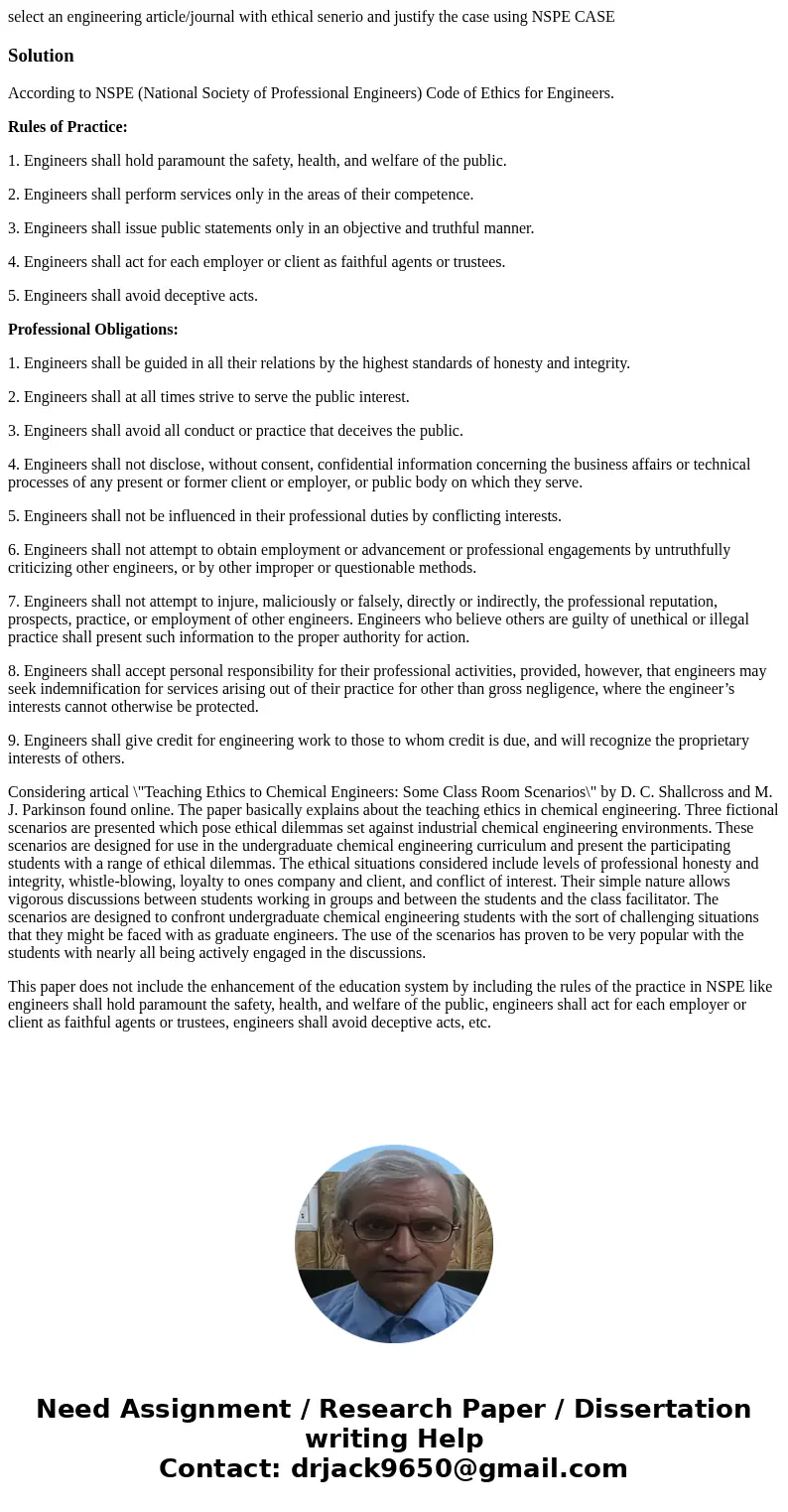select an engineering articlejournal with ethical senerio an
select an engineering article/journal with ethical senerio and justify the case using NSPE CASE
Solution
According to NSPE (National Society of Professional Engineers) Code of Ethics for Engineers.
Rules of Practice:
1. Engineers shall hold paramount the safety, health, and welfare of the public.
2. Engineers shall perform services only in the areas of their competence.
3. Engineers shall issue public statements only in an objective and truthful manner.
4. Engineers shall act for each employer or client as faithful agents or trustees.
5. Engineers shall avoid deceptive acts.
Professional Obligations:
1. Engineers shall be guided in all their relations by the highest standards of honesty and integrity.
2. Engineers shall at all times strive to serve the public interest.
3. Engineers shall avoid all conduct or practice that deceives the public.
4. Engineers shall not disclose, without consent, confidential information concerning the business affairs or technical processes of any present or former client or employer, or public body on which they serve.
5. Engineers shall not be influenced in their professional duties by conflicting interests.
6. Engineers shall not attempt to obtain employment or advancement or professional engagements by untruthfully criticizing other engineers, or by other improper or questionable methods.
7. Engineers shall not attempt to injure, maliciously or falsely, directly or indirectly, the professional reputation, prospects, practice, or employment of other engineers. Engineers who believe others are guilty of unethical or illegal practice shall present such information to the proper authority for action.
8. Engineers shall accept personal responsibility for their professional activities, provided, however, that engineers may seek indemnification for services arising out of their practice for other than gross negligence, where the engineer’s interests cannot otherwise be protected.
9. Engineers shall give credit for engineering work to those to whom credit is due, and will recognize the proprietary interests of others.
Considering artical \"Teaching Ethics to Chemical Engineers: Some Class Room Scenarios\" by D. C. Shallcross and M. J. Parkinson found online. The paper basically explains about the teaching ethics in chemical engineering. Three fictional scenarios are presented which pose ethical dilemmas set against industrial chemical engineering environments. These scenarios are designed for use in the undergraduate chemical engineering curriculum and present the participating students with a range of ethical dilemmas. The ethical situations considered include levels of professional honesty and integrity, whistle-blowing, loyalty to ones company and client, and conflict of interest. Their simple nature allows vigorous discussions between students working in groups and between the students and the class facilitator. The scenarios are designed to confront undergraduate chemical engineering students with the sort of challenging situations that they might be faced with as graduate engineers. The use of the scenarios has proven to be very popular with the students with nearly all being actively engaged in the discussions.
This paper does not include the enhancement of the education system by including the rules of the practice in NSPE like engineers shall hold paramount the safety, health, and welfare of the public, engineers shall act for each employer or client as faithful agents or trustees, engineers shall avoid deceptive acts, etc.

 Homework Sourse
Homework Sourse